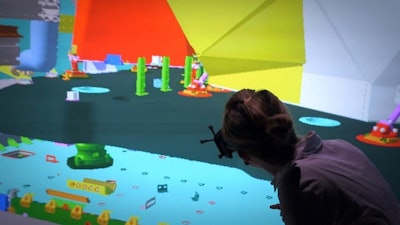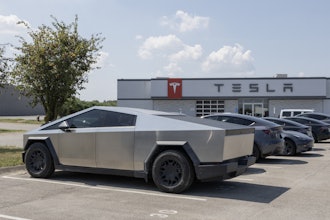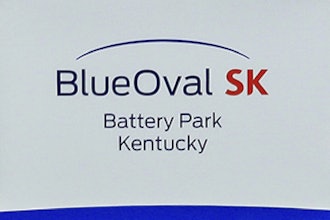
Lockheed Martin and Brigham Young University (BYU) are collaborating to apply gaming technology for engineering purposes, allowing users to interact with, record and share engineering designs in virtual reality.
Last year, the company awarded a research grant to the BYU Department of Mechanical Engineering to develop aspects of a virtual reality (VR) training and design review system that will advance Lockheed Martin's digital engineering capabilities.
BYU engineering student and Lockheed Martin intern Jeffery Smith helped facilitate a virtual reality research partnership between the company's Collaborative Human Immersive Lab (CHIL) and BYU.
"The BYU students created an impressive demo of the VR system that really highlights the potential of this technology, even in its early stages," said Darin Bolthouse, manager of Lockheed Martin's CHIL in Denver, Colorado. "Their work will help us learn from and share experiential 3-D imagery in every stage of product development, from engineering design and manufacturing to operations and sustainment."
The system will leverage immersive 3-D technology for design efficiency, collaboration and training and will allow the company to identify potential challenges during development before they manifest in the manufacturing or sustainment process. Ultimately, VR engineering saves millions of dollars by avoiding extra design and build time.
The initial research period concludes in March, and Lockheed Martin and BYU are discussing options to continue the virtual reality research partnership, as well as pursue additive manufacturing research opportunities.
Virtual reality and additive manufacturing are elements of Lockheed Martin's Digital Tapestry approach, which employs modern digital technology to seamlessly connect conceptualization, design, verification, manufacturing and sustainment. The company applies the Digital Tapestry to a variety of projects, from interplanetary spacecraft to missile development programs.
The Digital Tapestry will also play a prominent role in a new Lockheed Martin program office that is under construction at Hill Air Force Base in Northern Utah.
"With VR and the high-tech laboratory space we are building in Utah, our customers will be able to experience our designs virtually with greater fidelity than we've ever had before," said John Karas, Lockheed Martin vice president and Ground Based Strategic Deterrent program manager.






















